Please be warned that this posting is about dying and don't read it if you will be upset...
My father's dementia with Lewy bodies seems to have progressed. He was more than usually confused as to place -- not able to hold on to an understanding of where he was -- but worse was the paranoia, his conviction that he had been captured and was held in this unknowable place by people of evil intent. The doctor had prescribed sedatives for him to take when he wanted to but I knew that he wouldn't take them from the nurses, whom he suspected of holding him against his will and deliberately changing their uniforms in order to confuse him more. I sat close, held his hand and explained what the new medication was and how it might help. Struggling with the rigidity that comes with the disease, he lifted his head slightly and said, "Don't kill me."
I gulp and reassure him that this is not the intention and that he can trust us.
"I suppose there are two people I can trust", he says, meaning myself and my brother, and excluding the teams of people and look after him day and night.
The "don't kill me" was shocking to hear from the man who always kept his Do Not Resuscitate letter in his wallet, having made sure that everyone knew it was there and reflected his wishes; from the man who, in moments of respite from confusion, now spoke of himself as a waste of time. As I drove back from the hospital, I thought about this instinct to preserve one's own life no matter how pitiful it has become.
It is this instinct that had motivated him to crawl to the phone after he had fallen, disentangling his heavy and barely functioning legs from his walking frame and kitchen stool. It is this instinct that keeps the dying alive and diverts their diseases for a while. It must, I thought as I slowed to a halt at a dangerous road junction, have evolutionary advantages. Without the instinct of self-preservation, I wouldn't slow down; I wouldn't care if another car was coming because it wouldn't matter to me to stay safe. I had a brief vision of cars crashing into each other at every junction in the land before realising that as societies we wouldn't have got as far as inventing cars and roads if it didn't matter to us to keep our bodies safe. Back in the cave, we wouldn't even have managed to cook a meal without burning ourselves or our children; but then we wouldn't have managed to chop the wood for the fire or make the tools for chopping, and we wouldn't even have the urge to eat in order to keep our bodies full of energy. Without an instinct to preserve life, why would childbirth matter or keeping mothers alive to nurture them? The instinct of self-preservation is not just an evolutionary advantage, but an evolutionary necessary condition.
Without an instinct of self-preservation, we wouldn't value people who can keep bodies safe -- there would be no medical profession since we wouldn't care to keep ourselves alive; no hierarchy of doctors and nurses and care assistants, no training, no status for the consultant, no ambulance rushing to rescue us, since dead would be as good as alive. No hospices caring for the dying, but then again no emotional pain involved either in dying or watching dying. And certainly no funeral directors since we’d be surrounded by dead or dying people, and it wouldn't matter too much.
Probably no shelter and thus no houses, since we wouldn't have the urge to stay warm and dry, to protect our bodies. And no churches, no religion, since we wouldn't need the reward or consolation of life after death, that being as little valued as life before death.
So this instinct, that my father retains as his mind unpicks its carefully structured understanding of place and his position in it, is not only long-lasting and powerful but seems to underpin the construction and development of societies and families.
The elemental force of the instinct of self-preservation helps explain why we find it so hard to contemplate or make sense of the idea of not being alive, of stopping being alive. And it seems to help explain some of my own anxiety in this situation. Unable to make any difference to the progression of the disease that removes my father piece by piece, my body sometimes feels as if a thick sack under my skin has enclosed my bones and organs; inside the sack, my bones and organs are alternately pressed and shaken. It comes as a surprise when I look in a mirror to see myself apparently normal, with no obvious reflection of the internal compression and upheaval. However close we come to death in other people, the reality of our own death remains different and inaccessible to our comprehension. Being near to death in other people, though, mirrors itself in our brains and bodies just as any other action does; unlike other actions, we cannot map it on to our own bodily experience. An enveloping physical discomfort results from the disjunction between mental experience and understanding.
Sunday, 4 May 2008
Subscribe to:
Post Comments (Atom)
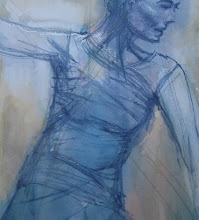
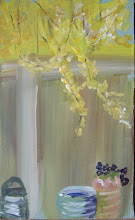
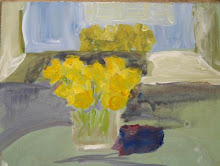
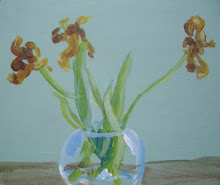
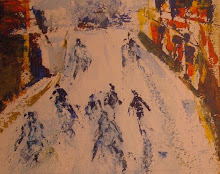
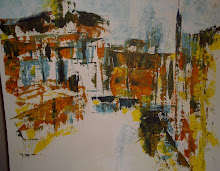
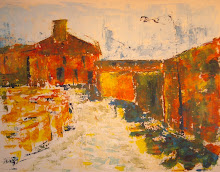
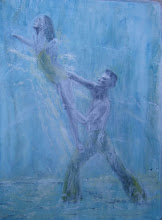
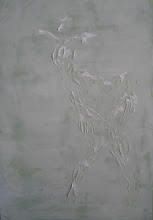




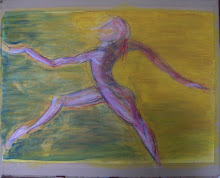
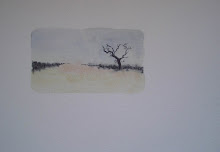
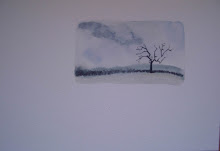
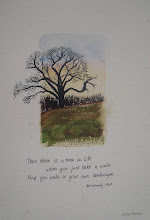




No comments:
Post a Comment